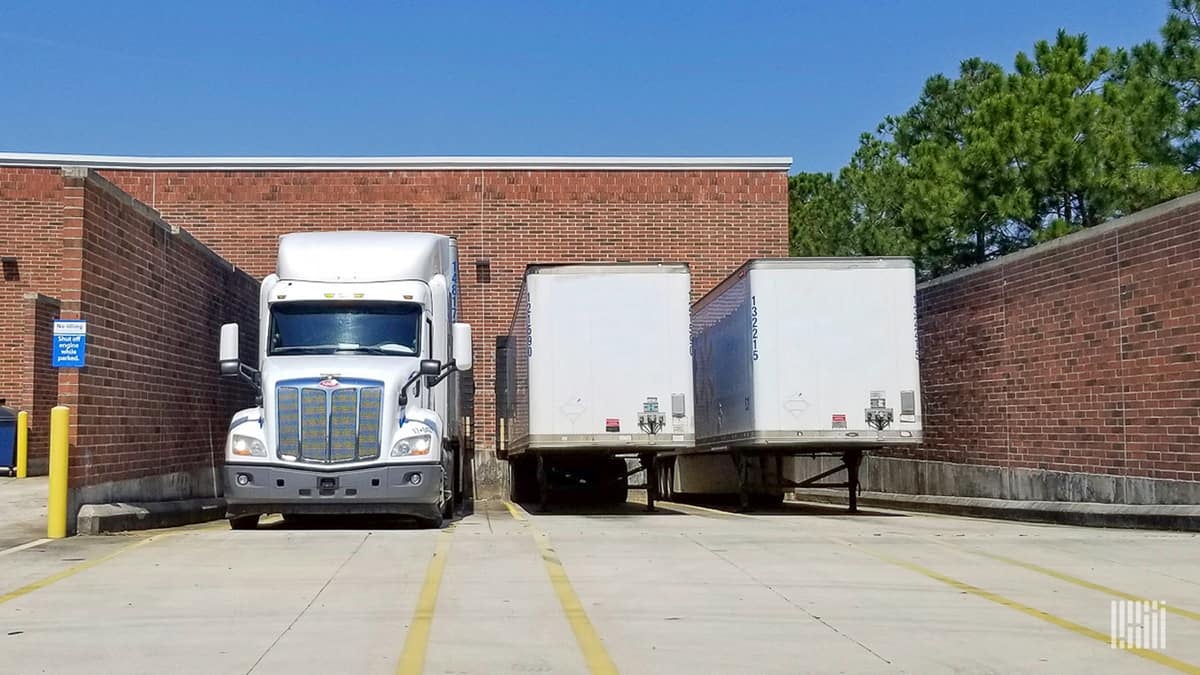First launched as a trial program in 2017 and expanded nationally in 2019, Convoy Go is growing yet again. The digital freight network’s drop-and-hook program is adding three significant enhancements the company believes will provide more value for shippers and carriers while reducing costs and empty miles and improving asset utilization.
“Supply chain teams prefer drop for its speed and simplicity, but traditional drop programs are rigid and don’t respond well to market volatility,” said Ziad Ismail, chief product officer at Convoy. “With recent enhancements to Convoy Go, we’re addressing the biggest challenges of drop-and-hook freight, providing flexibility to scale up during demand surges and a level of trailer visibility never before possible. This has driven unprecedented customer demand for our drop service and contributed to strong business growth over the last year.”
Convoy is adding predictive trailer routing, Automated Reloads with batched routes and smart trailers to the program, which has seen 245% volume growth year-over-year and more than 80 shippers participating, it said.
According to Convoy, while drop and hook is a preferred method for many shippers and carriers, it is still faced with challenges, including the complexity of matching, tracking and routing decoupled tractors and trailers. The solution to this for carriers and brokers is manual tracking using “stale data and inaccurate forecasting that in turn limits their service to dense lanes with predictable shipments,” Convoy said.
With predictive trailer routing, Convoy said it can effectively route empty trailers to a customer’s facility while ensuring Convoy Go’s trailer pool is properly balanced for future demand. Convoy utilizes machine learning to analyze historical shipment data, GPS-based trailer locations, shipment assignments, inspection reports and driver locations to model trailer route permutations to predict weeks in advance where trailers will be needed.
Convoy is also adding its automated reloads with batched routes for drop to the Convoy Go program, allowing drivers and shippers even more flexibility, the company said. With batched routes, carriers can combine three or more runs into a single multistop job. The new addition allows for multiple drop and live loads into a single trip.
Automated Reloads presents drivers with a collection of loads that take into consideration criteria such as the carriers’ lane preferences, driver hours of service availability, driver locations and facility wait times. Arpan Sinha, Convoy’s head of product for matching, explained Automated Reloads to FreightWaves in 2019.
“Automated Reloads … packages multiple loads together in real time. Now a carrier can benefit from Convoy’s automated matching to save time compared to trying to book sequences of loads on their own and also have the flexibility to add a ‘Suggested Reload’ to keep their trucks full longer,” he said.
Finally, Convoy is leveraging the Internet of Things to more effectively track and manage trailers in the Convoy Go program. Each of the program’s more than 3,000 trailer units is now equipped with advanced telematics to provide more visibility into that trailer’s location and operation.
“Combinations of ultrasonic, optical laser and radar sensors deliver real-time information to Convoy’s cloud-based data lake,” Convoy said. “A machine learning model then analyzes this data to ensure shipments are progressing as planned, automatically flagging issues that require Convoy to course-correct.”
The available data helps customers know if the trailers are loaded and ready for pickup; whether the correct driver is hauling the trailer; status of the trailer and its shipment; if the trailer is available for another shipment; and how many trailers are inbound to each facility. In addition, maintenance issues are tracked and recorded.
“This automated workflow enables Convoy Go’s nationwide fleet of thousands of trailers to be remotely monitored and managed by a handful of specialists, who can make any necessary adjustments even minutes before preloading,” the company said.
Shippers must move at least 250 full truckloads per year in the U.S. to participate in Convoy Go, but the program is open to any carrier or owner-operator.
Click for more FreightWaves articles by Brian Straight.
You may also like:
Convoy gives truckers a choice: Choose one load, or a pre-planned package
Convoy touts 45% reduction in empty-mile emissions as its Automated Reloads program grows











